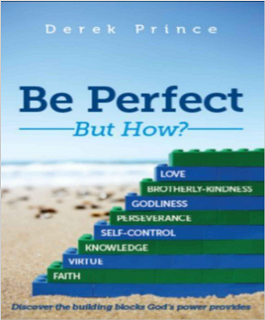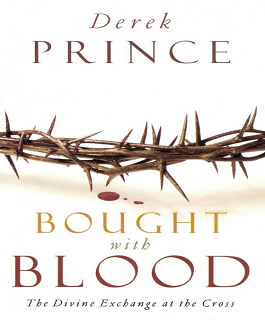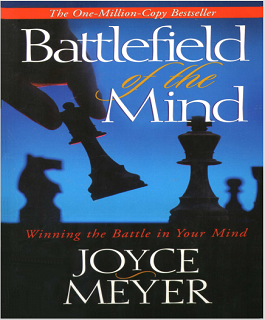Books by Shadrack Acquah
١٣ Books found
Be perfect --but how
Authors: Derek Prince
INTRODUCTION One of the simplest commandments Jesus ever gave can be stated in two words, “Be perfect.” This command is simple in number of words but certainly not so simple to carry out—just two direct words, “Be perfect.” In addition, Jesus didn’t say try to be perfect, He said be perfect. He never told us to t r y to obey any of His commandments. He never said try to love your enemies; He said love your enemies. Why? Because He knew if we were to rely on our own ability to be perfect, we might as well give up in frustration and failure. It is impossible

Bought with the blood
Authors: Derek Prince
CHAPTER 1 One All-Sufficient Sacrifice A single theme runs throughout this book: atonement. This word is comparatively rare in contemporary English. In fact, many English-speaking people today do not even know what the word means. Its meaning begins to appear, however, when we divide the word up into its three syllables: at-one-ment. That is what atonement really means—that God and the sinner are brought into a relationship in which they are atone. A more common word today is reconciliation. Through the cross God and the sinner are reconciled to each other. There is a vitally important difference between the word translated atonement in the Hebrew of the Old Testament and the word translated atonement in the Greek of the New Testament. In Hebrew the word is kippur and means "covering." The Day of Atonement was a day of covering. By the sacrifices offered on that day, the sins of the people were covered— but only for one year. The next year at the same time, their sins had to be covered once more. The sacrifices offered that day provided no permanent solution, therefore, to the problem of sin; they merely provided a temporary covering. On each successive Day of Atonement, that covering was extended for one more year. The picture of atonement in the New Testament is totally different. We see this when we contrast two passages in Hebrews—the book that deals, above all others, with Jesus as our High Priest and with the sacrifice He made on our behalf. First, Hebrews 10:3-4 speaks of the sacrifices of the Old Testament: "In those sacrifices there is a reminder of sins every year." So, far from taking sin away, those sacrifices reminded the people of the problem of sin. "For it is not possible," the writer continues, "that the blood of bulls and goats could take away sins." The central issue here is taking away sins, not merely covering them. In Hebrews 9:26, on the other hand, the writer speaks about what was accomplished by the death of Jesus, in direct contrast to the Old Testament sacrifices. In the second half of that verse, speaking of Jesus, the writer says: "But now, once at the end of the ages, He has appeared to put away sin by the sacrifice of Himself." So when Jesus came and offered Himself as a sacrifice on the cross, He put away sin. This action contrasts with the Old Testament sacrifices, which merely reminded people of the fact that sin had not been dealt with and provided a covering that was valid for only one year. When John the Baptist introduced Jesus in John 1:29, therefore, he said, "Behold! The Lamb of God who takes away the sin of the world!" Notice once again how different this is from the Old Testament. Jesus took away sin. For that reason, for those who have accepted His sacrifice, there remains no further sacrifice for sins
- Featured

Battle Field of the mind
Authors: Joyce meyer
“If you’ve ever felt like your thoughts were out of control, this book will show you how to take them captive—and win the battle for your peace, purpose, and joy.”
- Featured

Power of Now
Authors: Ekhart tolle
📖 Brief Summary The Power of Now is a spiritual and practical guide that teaches how to live fully in the present moment. Tolle explains that most human suffering comes from being trapped in past regrets or future anxieties, while true peace and happiness exist only in the Now. Key ideas include: Ego & the Mind: The mind often creates false stories that keep us restless and unhappy. Presence: By focusing on the present, we find freedom from worry and inner peace. Pain-Body: Emotional baggage feeds on negative thoughts, but awareness dissolves it. Enlightenment in Daily Life: You don’t need to escape to a mountain or monastery—awakening happens in simple awareness of everyday moments.

